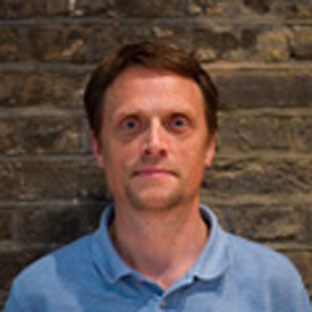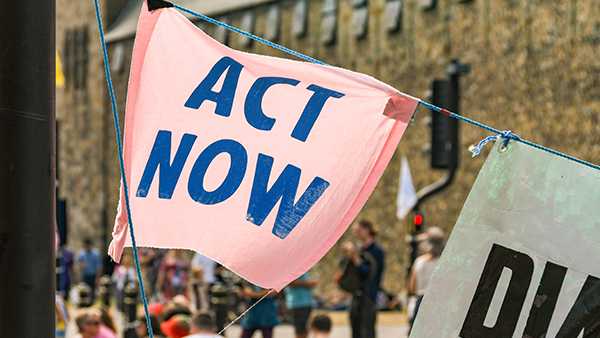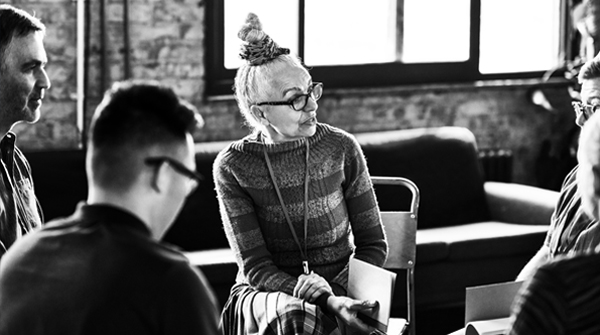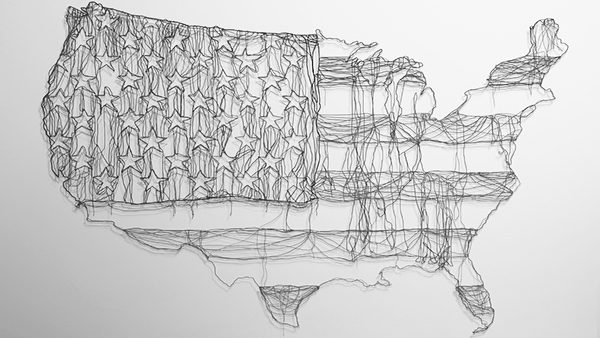We need transformational answers, but most of the time we aren’t even asking the right questions.
The OECD refers to our biggest problems as the ‘three Ps’:
- cultural polarisation
- political populism
- social pessimism
To tackle them, we need transformational change. Without it, growing conflict, failure, and ultimately chaos are almost certain.
But periods of flux, threat, and confusion like ours can and have led to renewal. We’ve seen this in history: the Dutch Golden Age, the American Progressive Era, Western Europe’s post-war ‘glorious thirty’ years.
Whether we suffer the chaos or achieve renewal depends on how we respond to two imperatives:
- first, a profound shift in our sense of purpose
- second, the overthrow of our institutional forms.
Or, to put it more simply - we must think differently and we must be able to act differently.
Take, for example, education systems here and around the world. They are largely failing to reduce inequality, to enhance wellbeing (among either learners or educators) or to prepare people for the future.
Conversely, the most innovative education institutions are the ones which judge themselves not merely by academic attainment but by their ability genuinely to enable young people to be rounded, engaged, and confident citizens. Which see themselves not as separate institutions competing with others to succeed according to narrowly defined national criteria, but as integral parts of local learning ecologies deeply embedded in, and accountable to, the communities they serve.
People trying to make government more legitimate and efficient need to talk to each other
Government is crucial to this. Not only because its actions at multiple levels so shape our lives, but because it is the role of those who govern is to try to achieve balance between different forces (most obviously, between the logic and needs of individualism and the logic and needs of solidarity). This balance is the core characteristic of successful and resilient systems.
In play right now, there are two different renewal paradigms for government. Both are having some impact, but neither is doing enough to reverse our current downward trajectory.
The first focusses on politics and democracy and looks for ways to reform and renew the legitimacy of collective action and decision making.
The second focusses on provision provided or funded by the state (welfare systems, public services, social enterprises). The aim here is a more effective, entrepreneurial, agile state.
An important but prosaic observation is that the people driving these two types of strategy don’t engage much with each other. The former are fond of concepts, questions and deliberations, the latter stick to products, solutions and data. But the problem is deeper than a failure to join up the people who most like communities with the people who most like gadgets.
Change is unpredictable. Leaders need to be able to experiment and adapt.
At the RSA we advocate ‘thinking like a system and acting like an entrepreneur’. An implication of this approach is the importance of momentum.
Change can come from anywhere in a system but, in a world where so much about the future is not only unknown but is unknowable, transformation means the ability to continuously experiment and adapt.
To have a chance of building and maintaining momentum, public institutions need not only to be simultaneously renewing their legitimacy and their operating methods but seeing how advances in one domain make possible, indeed demand, advances in the other.
This says something crucial about leadership. Dynamic change on this scale is unpredictable and risky. Therefore, leadership that relies on an unfolding plan, much less fixed outcomes, simply won’t deliver.
We need leaders whose understanding of our crisis and whose determination to make a difference is such that they will determinedly and openly embark on a journey without knowing where it will end. Any leader who claims to be doing this this without regularly feeling disorientated and vulnerable is deluding themselves.
At the RSA we are building the concepts, tools, and civic capacity to put in service of those committed to transformational change. Because, the only thing more frightening than doing it, are the consequences of not doing it.
Related articles
-
The public are ready to go further and faster on net zero
Anthony Painter
The public are ahead of policy-makers and, indeed, most of the business world. COP26 is an enormous opportunity to catch up. Global leaders should take it.
-
Can progressives ever stop the in-fighting?
Matthew Taylor
Biden's victory has caused the left and moderates to fracture again.
-
Can President Biden bring America together again?
Anthony Painter
There is a long road ahead for the new president.




Join the discussion
Comments
Please login to post a comment or reply
Don't have an account? Click here to register.
I enjoyed reading this Matthew, I have just written a similar article posted on the RSA blogs, let's work together to continue to learn as leaders, fit for the world of tomorrow.
Great article. Key sentence:
We need leaders...whose determination to make a difference is such that they will determinedly and openly embark on a journey without knowing where it will end.